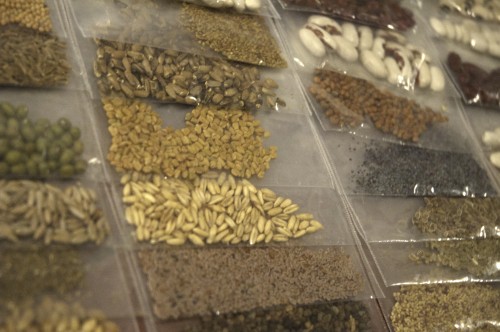Okay, so, I think it’s pretty clear I’ve gone a little crazy for the miracle that is agriculture in the last couple of weeks.
This is what happens to me, when I’m broke. I get an idea, and I run with it.
See, I’ve spent most of my life being broke, and by this point I’m getting pretty good at it. I’ve learned that the most important part is staying busy. There’s a lot you can do in life to enrich yourself, to improve your position, or even just to stay busy, that doesn’t have to involve money. Thinking, for example. Learning, too.
Then there’s the things you do to save what little money you have. Like bringing the bottles to a redemption center, rather than leaving them out for the recycling truck, or sewing up a torn pair of pants rather than buy new ones, or watching movies on the Internet for free rather than renting them at the video place. To me, gardening is another one of these things, and even better, because saving money is almost a fringe benefit, and not the main reason for the activity.
But gardening can be expensive, especially when you’re getting started. You need gardening stuff. If you’re outside, you’ll probably need compost when you rip up the lawn, but obviously you won’t have your own. If you’re gardening inside, you’ll need containers, if you’re in a city you might even have to buy soil. Most of the time, you can figure out ways to get this stuff for free, and that can be another good way to fill up your time. Restaurants are a good source of containers, and if you don’t have compost, you can probably ask some well-established gardener for a small loan, which you can pay back next year. You will have to spend at least some money, but consider it an investment: you’ll probably pay yourself back in the first year.
And then there’s seeds. A full complement of seeds can get pretty pricey, at a couple of bucks a pack. But here’s the thing, my great discovery, my fantastic revelation:
You don’t have to get your seeds from seed companies.
Instead try the supermarket. Or, even better, your local food co-op. Because, as it turns out, a lot of what we eat is seeds, or contains seeds. Now, you gardeners who’ve been at it for a while are probably laughing at me right now. Well, that’s fine, it just means that you’ve forgotten your first year, your loss. For me, this was a thunderous discovery: standing in my kitchen, trying to think of something to cook, my eye fell on a jar of dried beans. I’d been trying to start some of the leftover seeds we’d bought last spring, and I’d been looking enviously at the Seed Savers Catalog, trying to figure out which of their beautiful heirloom beans I’d plant when spring rolled around again this time. I realized then that in that jar I probably had enough beans to plant acres, and when I tried starting a few, they all sprouted!
There’s this 32-bean and 8-veggie soup from the North Bay Trading Co. that I like, so I went to the store, and spent $2.50 on a small sample of it. Nearly every bean sprouted. I now have around 20 varieties of bean trying to survive the winter in my greenhouse, some heirloom, some familiar favorites, some just plain weird. Like mung beans. I don’t even know what those are, but I’ve got them growing. I’ve played this same cruel trick now on many other seeds and grains, and while not everything sprouts, the beans have now been joined by all sorts of plants wildly inappropriate to the season. A friend of mine then caught wind of this little project of mine and got inspired, and he spent nearly an hour in the bulk department of our local co-op, taking tiny samples of everything that he thought could conceivably sprout, and came by the house later with nearly forty new varieties of seed, at a cost, when all was said and done, of 66¢. It’s a remarkable thing, how just like that you can go from being a guy with a few cents in his pocket to the custodian of nearly endless growth, of practically limitless potential…
* My dear friend Will pointed out that he’s written a post on his blog, about much the same thing. It’s quite good, even.

